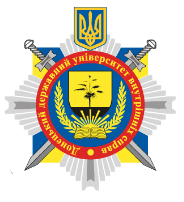THE MODERN REQUIREMENT FOR THE REALIZATION OF THE RIGHT TO PUBLIC ASSOCIATIONS: A THEORETICAL, LEGAL AND CONSTITUTIONAL STUDY
DOI:
https://doi.org/10.32782/2523-4269-2022-81-4-1-29-32Keywords:
public associations, right to association, legal institutions, pandemic crisis, decentralization.Abstract
The article is devoted to conducting a general theoretical and constitutional study of the modern dimension of the right to public associations. It is indicated that general theoretical legal science does not have a single, generally accepted understanding of the concept of civil society. It is proved that from the point of view of general theoretical jurisprudence, the right to public association is a form of implementation of representative democracy. It includes institutionalized forms of interaction between the state and civil society. Collective realization of rights through the creation of public organizations by citizens is the best way to exercise rights and freedoms, as well as to satisfy various interests. Public associations are the main subjects of civil society in view of their goals, tasks and legal status. It was established that the right to public associations is enshrined at the level of international, including “soft” law, as well as constitutional and legislative, which indicates that it is adequately guaranteed by regulations. A significant actualization of this right has been proven in connection with pandemic threats and in the context of the reform of decentralization of public power in Ukraine. It is motivated that the COVID-19 pandemic revealed and exacerbated a huge number of shortcomings in the functioning and decisions made by public authorities and, as a result, posed a threat to civil and political rights that modern states have accumulated. It is also indicated that the pandemic has demonstrated that the public has very few means and methods with limited mechanisms by the state to limit public activity for the purpose of protecting public health. Civil society organizations are one of the few that have the potential to control and challenge the executive, especially in times of crisis. It is argued that human rights NGOs have the potential to supplant more radical demands for economic justice and thus serve reactionary rather than revolutionary purposes.
References
Alston P. The Populist Challenge to Human Rights. Journal of Human Rights Practice 2017. Vol. 9(1). P. 1–15.
OSCE Office for Democratic Institutions and Human Rights. Joint Guidelines on Freedom of Association. 1 January 2015. URL: https://www.osce.org/odihr/132371.
ЄСПЛ, «Політична партія «Ураніо Токсо» та інші проти Греції» (Ouranio Toxo and Others v. Greece), заява № 74989/01, рішення від 20 жовтня 2005 року. URL: http://hudoc.echr.coe.int/sites/eng/pages/search.aspx?i=001-70720.
Yu, J., Jia, H.H., Lin, D. The Evolution of the CPC’s Conception of Association and Regulation of Social Organizations in China. Int J Semiot Law 2018. Vol. 31. P. 929–955.
Конституція України від 28 червня 1996 року. URL: https://zakon.rada.gov.ua/laws/show/254%D0%BA/96-%D0%B2%D1%80#Text (дата звернення: 02.11.2022).
Про громадські об’єднання: закон України від 22 березня 2012 року. URL: https://zakon.rada.gov.ua/laws/show/4572-17#Text (дата звернення: 05.11.2022).
Seyhan E. Pandemic Powers: Why Human Rights Organizations Should Not Lose Focus on Civil and Political Rights, Journal of Human Rights Practice, Volume 12, Issue 2, July 2020, P. 268–275. URL: https://doi.org/10.1093/jhuman/huaa035.
Pınar Varol Ü. The effect of non-govermental organization on local democracy in the ÇİĞDEMİM association ASSOCIATION BİR MAHALLE MONOGRAFİSİ DENEMESİ: ÇİĞDEMİM DERNEĞİ ÖRNEĞİNDE KURUMSAL YAPI VE TOPLUMSAL ETKİ ANALİZİ. Ağustos-2020. С. 43–48.





